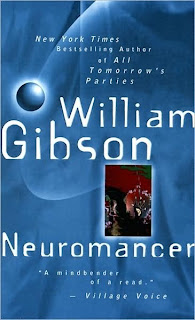by Paedar O'Guilin
Format: Paperback, 448 pages
Publisher: David Fickling Books
First published: 26 April 2012
Fans of the golden age of science fiction rejoice - The Deserter is no less than a bona fide homage to old school space opera. I enjoy the fact that the first instalment (The Inferior - which I reviewed a few years past) has an unwavering feel of fantasy through-and-through and the sophomore effort unveils itself as a space adventure mixed in with some good worldbuilding ideas. Since I haven't had the pleasure to read a lot of the old stuff I can't really judge on how many ideas Paedar - indiscriminately - borrowed. Taking this into account I have to say I really enjoyed a few of presented concepts, such as the Roof, impact of nano-tech, The Crisis and so forth.
The writing is not as vivid as I'd like it to be. The enviroment feels cramped and somewhat under-developed so I couldn't fully immerse into the world. Characters are very endearing, despite the fact the relationship between Indriani and Stopmouth is relatively straightforward. I also hoped for more insight into what makes Indriani and some of the others tick. The most believable character, in my opinion, was Hiresh - I enjoyed his inner strife and transformation. What I'm trying to convey is that despite light characterization, Hiresh has that added value to him that makes the reader care. Writing is simple (compared to some of the more eloquent masters out there), but very efficient. The plot moves along at a brisk pace and considering the fact that I managed to read one whole book in 2012 (notice the sarcasm please), I could exaggerate and say I finished The Deserter in mere seconds. I'd love to see less black&white and more intricate & complex presentation of the two Castes, but the main idea got through well enough. First half of the book is full of suspense, but once all the "mysteries" of the plot and the world itself get fully revealed to Stopmouth (and subsequently reader) the story bogs down a bit and the action scenes become somewhat repetitive. Nevertheless, I must admit the resolution of the story is quite enjoyable and well done.
I've read The Inferior quite a while ago so I don't feel confident enough comparing the books, but if recall correctly I've enjoyed the first one a bit more - emphasis is on the survival of the cast or it is simply more heartfelt and visceral, we witness Indriani's and Stopmouth's relationship grow in subtle and believable manner, fantasy world is in the forefront and there is a bucketful of unexplained information about the world (hinting at a larger sf setting) that keeps the reader guessing. Despite the shortcomings, The Deserter isn't a dissapointing read at all. It's not particularly profound in its nature, but I can't say it's simple and boring either. The world and the plot are well thought out, and even though the writing fails to always bring it forth for the reader The Deserter isn't plagued by the middle book syndrome. I can recommend the book as a light, fun and adventurous young adult read that grownups who enjoy(ed) science fiction's formative authors can pick up as well...if for nothing else to reminisce.













































